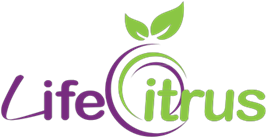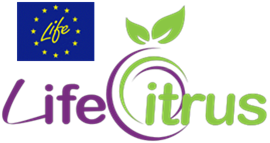PROJECT OBJETIVES
1. To demonstrate in a semi-industrial scale plant the effectiveness of an innovative industrial process, able to obtain natural ingredients from discarded parts of citrus fruits (lemon, orange, grapefruit and tangerine), validating its economical and financial balance and its feasibility. This raw material is currently a residue of the citrus transformation industry and fresh citrus fruit packing, which could be valorised with the proposed process, in the respect of the existing environmental laws, with economic profit and generating a decisive waste reduction estimated around 80% of current volume.
2. To disseminate among European citrus farmers, marketers and industries, relative associations and public bodies the concept that citrus industry scrap may be seen no longer as a polluting agro-industrial residue but as a valuable natural raw material. It will be demonstrated that new process offers to the sector improvement opportunities, adding value to the citrus products and valorising and minimizing industrial waste.
3. To promote the use of healthy “clean label” ingredients in agro-food industry. The proposed process generates gelling agents not labelled with an “E-number”, usable as a natural ingredient in many food products, replacing alternative “E-number” additives. If raw material (citrus industry residues) comes from a biological certified growing and processing, a biological gelling agent can be obtained.
4. To facilitate the preparation of low-calorie jams, jellies, juices and other food products (canned vegetables, bakery, pastry, beverages, etc.) and to disseminate this knowledge to regional, Spanish and European food industry. Gelling agents obtained in the proposed innovative process, unlike usual additives, react in the absence of sugar, allowing gelling light products. Specifically, a biological certificated new process should be able to provide the first gelling agent usable in biological lowcalorie
jams (product currently non-existent on market).
5. To evaluate in pilot plant the capability to use this new process for the treatment of residues coming from other fruits and vegetable processing industries.
6. To transfer project know-how to industry operators, in order to enable European citrus operators to apply the proposed process and technology at industrial scale, encouraging involved European industrial sectors and stakeholders to testing their residue in the plant.


